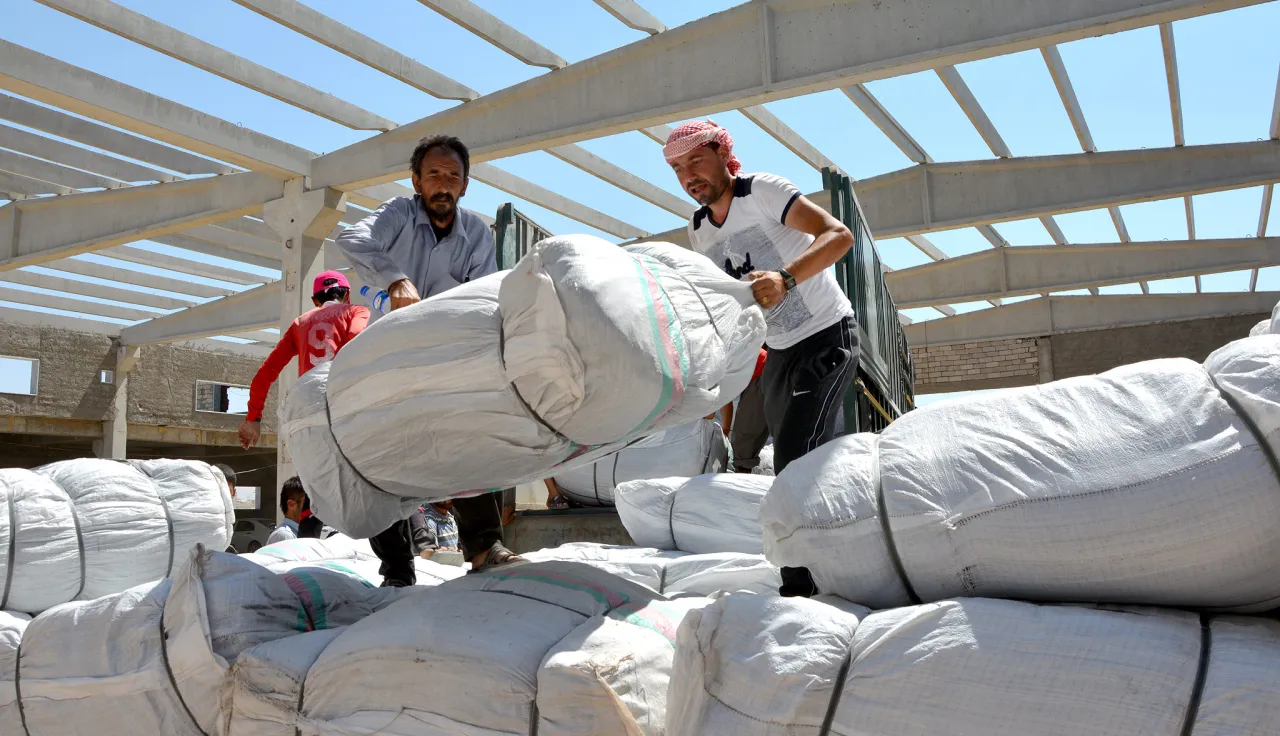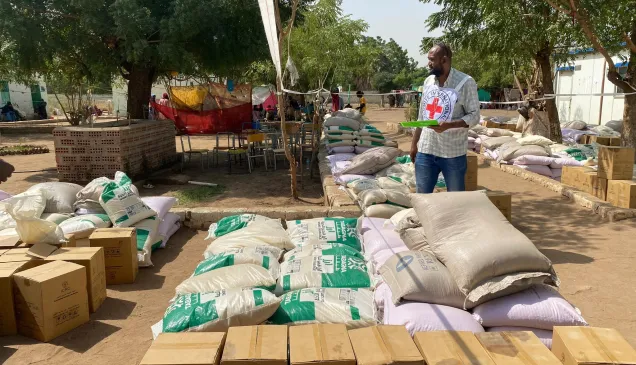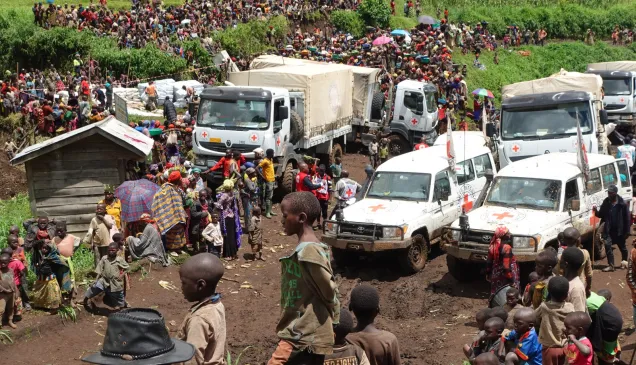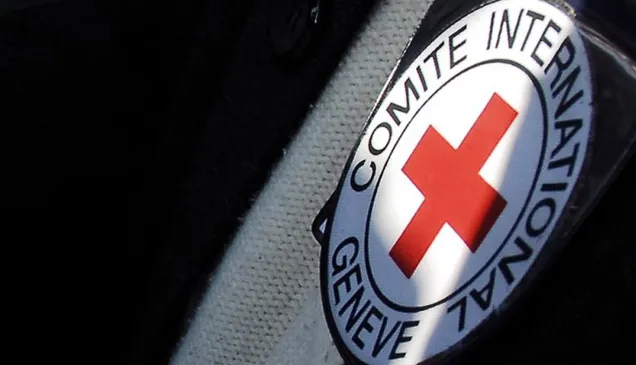Fighting in Iraq has displaced over 1.5 million people. The ICRC has delivered food, drinking water, other relief items and medical assistance to more than a million people since January, when the fighting started in Anbar province before spreading elsewhere.
"People who had to flee their homes have lost all their belongings and their means of earning a living. They do not have enough food, water or other basic necessities, and they have only limited access to health services," said Alienor Bernhard, deputy head of the ICRC delegation in Iraq. "In most places, their presence has put an additional strain on host communities and has outstripped the capacity of those communities to support them. We are continuing to provide relief for displaced people in all 14 provinces where they have sought refuge."
To meet the needs triggered by the sudden arrival of large numbers of displaced people in various cities and towns in Iraq's Kurdistan region, the ICRC had to airlift relief items from Jordan, bring in additional goods from Turkey and Iran, and buy certain items locally in Erbil.
"In cities such as Dohuk, Sharia and Khanke, in the Kurdistan region, schools, empty half-built buildings and even underpasses are now occupied by displaced people," said Govinda Prasad, in charge of the ICRC's distributions of food and other relief items. "In coordination with the authorities and local communities, the ICRC has provided food and other basic necessities for more than 320,000 displaced people in areas extending from Basrah in the south to Dohuk in the north."
The continuing fighting has also resulted in increased pressure on health-care facilities, with thousands of wounded or sick people requiring medical care. In coordination with the health ministry, the ICRC has delivered enough medicines and other medical supplies, such as wound-dressing materials and fluids, to meet the needs of more than 120,000 people in Fallujah, Mosul, Al-Hamdaniyah, Erbil, Sinjar, Ba'shiqah, Qara Tappa, Sa'diyah and Tooz, and in various cities and towns in Anbar, Diyala, Ninawa, Saladin, Dohuk, Erbil, Kirkuk and Najaf provinces.
Since the beginning of the year, the ICRC has provided clean drinking water for nearly 865,000 people, more than 200,000 of whom are displaced. "The ICRC is delivering drinking water by truck to displaced people in settlements such as Khanaqin in Diyala, and Khanke in Dohuk," said Sebastien Renou, an ICRC water engineer. "In addition, the upgrading of water facilities has enabled us to supply water to host communities that also benefits tens of thousands of other displaced people."
As fighting persists, the ICRC is concerned by reports of serious violations of international humanitarian law, and by the situation of increasing numbers of people being seized and held by parties to the conflict. It is reminding all parties involved in the hostilities of their obligation under international humanitarian law to treat persons deprived of liberty humanely, to spare civilians and civilian objects the effects of hostilities, and to facilitate the delivery of humanitarian aid.
The wounded and the sick must be provided with appropriate medical care and granted prompt and safe access to health services. Medical facilities must be protected and respected, and every effort must be made to ensure that medical personnel can carry out their activities unhindered.
For further information, please contact:
Saleh Dabbakeh, ICRC Baghdad, tel: +964 790 191 6927
Sitara Jabeen, ICRC Geneva, tel: +41 22 730 24 78 or +41 79 536 92 31




